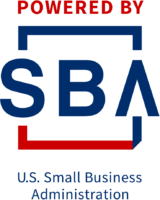The onset of the COVID-19 pandemic sent shockwaves around the world, and they’re still rippling today. Businesses had to quickly pivot from in-person transactions and services to virtual operations, or close down until stay at home orders and other restrictions eased or lifted. While it varies from state to state, due to statutory and rule based operating requirements, requiring facilities to be open a certain amount of hours per week, many were deemed essential. These circumstances create a huge set of complex challenges for anyone in business to navigate, from workers and their families to management and owners, let alone vendors and ancillary businesses.
The bright side is being in an industry where plot twists are not uncommon. Cannabis is legal and highly regulated state by state, illegal on a federal level, so it’s always full of strategic problems to solve. With so many people, businesses, ever-shifting regulations, and financial interests at stake, the need for strategic legal services are the constant. From a purely business and regulatory standpoint, the pandemic has provided some in the cannabis industry with quantum leaps forward in operations and service, and many of them may likely become the new norm.
For people with anxiety (#everydemographic2020) and other debilitating medical conditions, perception is shifting towards the importance and benefits of cannabis as a medicine and alternative therapeutic treatment option, on pace with a larger global trend towards personal and shared wellness. There’s more freedom for consumers to participate recreationally in states with adult use programs too. Extended families and friends in other states may not have the same access to cannabis. We live in a socially driven world, and the awareness of the medicinal properties of cannabis has rapidly grown nationwide across broad demographics. The gateway drug stereotype and stigma is slowly but surely fading away.
Momentum and shift in consumer behavior, need and the shifting perspective of healthcare providers is affecting more state regulators. They’ve worked with the cannabis industry to modify and adjust operational rules as needed to ensure medicinal access during the ever-changing COVID climate. Although current rules and regulations haven’t been lifted in any way, this is a step in the right direction. However, recreational states are less likely to consider that portion of the cannabis market essential and look for ways to prioritize medical dispensaries over recreational.
Medical Cannabis Businesses Deemed Essential
The most immediate problems to solve in many states were social distancing and waiting areas – where to keep patients/customers? There are state guidelines and regulations for operations during COVID, plus CDC general safety and sanitation considerations for workers and consumers alike. Lawyers and regulators are working to make sure that these stores are open and operating safely, have established safety protocols, number of customers allowed inside the store, minimum hours of operation, and to allow for special elderly hours and accommodating patients with compromised immune systems.
 One of the biggest operational changes has been an increase in the facilitation of online ordering and curbside pickup to help keep patients safe. Employees are wearing gloves and PPE as an added precaution. This puts the health of the patients and employees first, while still allowing businesses to operate.
One of the biggest operational changes has been an increase in the facilitation of online ordering and curbside pickup to help keep patients safe. Employees are wearing gloves and PPE as an added precaution. This puts the health of the patients and employees first, while still allowing businesses to operate.
More and more patients are not all that enthusiastic about making in-person appointments that may put them at risk. In every state, people waver between venturing out for necessities so they’re buying larger quantities and stocking up when they can, and cannabis is no different. Cash-paying customers must still pay in-person. As federal regulations continue to hinder additional payment options and protections, demand for change grows on both sides.
Staffing in a Pandemic
Like all employers, it’s easier for larger cannabis companies to accommodate employees who are sick or may have been exposed. It’s often more difficult for smaller operations. For many employees, the decision to go into work sick means rent and food, because the employer can’t offer additional sick pay.
In most states, employees have to have some type of state card to work in a store. It’s hard to find replacements and pay for sick leave. There’s no call for a temp agency solution due to clearance needed by cannabis employees. If the business has to shut down, it might not be able to bounce back. So in some states, cannabis businesses have suffered setbacks, but not to the extent as other industries such as hospitality, food and beverage, and tourism.
Crunching the Numbers
The cannabis industry is also excluded from PPP loans and other federal aid. True plant-touching cannabis companies can’t access those funds, adding extra financial stress to operations. The irony is for the majority of cannabis operations nationwide, the biggest change was not the increased regulatory requirements for social distancing, sanitation and safety, it was handling the incredible increase in product demand under circumstances that include financial and staffing stress.
 One Arizona-based dispensary was averaging around $300K a month before COVID-19. Today, business has more than tripled to nearly $1 million a month. In mature legal state Colorado, a record $155 million in recreational product sales for June reflects a six percent increase over the previous month’s sales. The Colorado Department of Revenue collected $33.6 million from the industry in June. Colorado’s medical dispensary sales record was set in May, just shy of $43 million, dropping down to about $40.8 million in June. Both are still setting records for business volume. For 2020, revenue already exceeds $203.3 million, in contrast to roughly $302.5 million in cannabis-related revenue in 2019.
One Arizona-based dispensary was averaging around $300K a month before COVID-19. Today, business has more than tripled to nearly $1 million a month. In mature legal state Colorado, a record $155 million in recreational product sales for June reflects a six percent increase over the previous month’s sales. The Colorado Department of Revenue collected $33.6 million from the industry in June. Colorado’s medical dispensary sales record was set in May, just shy of $43 million, dropping down to about $40.8 million in June. Both are still setting records for business volume. For 2020, revenue already exceeds $203.3 million, in contrast to roughly $302.5 million in cannabis-related revenue in 2019.
Heightened Supply, Demand & Opportunities
Heightened demand and the search for new market ventures means investors are taking notice. People sheltering or working from home are spending more time online, too. Many are searching for healthcare; others for promising investment opportunities. Legalization has been a long journey, state by state. Everyone inside the cannabis and hemp industries has learned to roll with the punches – expect ongoing legal needs, and to do strategic short- and long-term planning. How to anticipate change and pivot on a dime. It’s a must.
With the healthcare system struggling or strained in many areas of the country, non-essential primary care has shifted to telemedicine. Federally, the DEA granted permission to do so that extends for the duration of the COVID-19 public health emergency. The problem? State-level regulations may prohibit the prescription of Schedule III drugs via telemedicine, or limit the amount and refills. For essential healthcare, limited appointments or emergency-only availability remains a concern. Innovative new cannabis products help fill that gap.
There will be more challenges as elections approach and beyond. For those in cannabis, we’re used to being ready for anything. Stay tuned.




